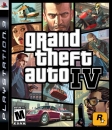Hiku said:
Right, I meant to say the core console market. The drop in pace can largely be attributed to Wii's broad appeal to non-gamers/casual-gamers in contrast to their huge mishap with WiiU. That crowd is no longer here. And when comparing sales to the previous generation, their disappearance largly affects Nintendo, but is more or less irrelevant for Sony's sales. |
That's a good point, which I've also understood for some time; the PS4 simply has access to an, on average, more stable pool of consumers over any given period of time. I'm not technically arguing that this is so much smaller now than before in theory, so much as suggesting that there won't be enough time and not enough leeway on pricing in the 8th gen to collect as many sales as it could have under diffrent circumstances, and that there are a lot more potential detractors. And even static devices have fringe customers, consumers who can be swayed into buying other devices or who purhcase more on a whim or due to specific software titles, features or "it" factor. The PS2 had a lot of fringe customers most likely, this is made even more likely by the immense breadth of software that it offered. The market constant for consoles is that people buy games, so a broader offering of software will ensure you tap into the market constant in a bigger way.
The PS4 falls under this and has good breadth that is getting even better, but the problems remain with a likely shorter generation and relying on revision (like I said in 2013 that consoles would in the 8th gen, to a bigger extent than before) and this is paired with attempts at peripherals that simply fall way short of mainstream territory mainly due to pricing and also miss potential core consumers due to poor implementation and UI, connectivity etc. (talking about PSVR of course).
Choices are more plenty, the pace is faster, revisions closer in between and prices are harder to drop due to the multitude of features and additions to modern static devices (like consoles). Consoles are technically cheaper to buy for consumers today than 20-30 years ago, but building cost deflation is slower due to the need for a lot more 3rd party parts and solutions through offerings both in OS, licenses, digital and physical features and hardware.
Put simply; the PS4 (and Xbox One and Wii U) is a static product in a really fast-paced consumer electronics market. Revision and updates will only get you so far and the cycles are bound to be shorter than a decade or two ago. In addition to the pace, the sheer selection of devices, platforms and forms of gaming is incredible compared to early 2000's or late 1990's. For me, this means that 110 million sales for the PS4 is really, really hard to reach and it makes perfect sense from where I'm sitting (again though, I could very well be wrong).




















